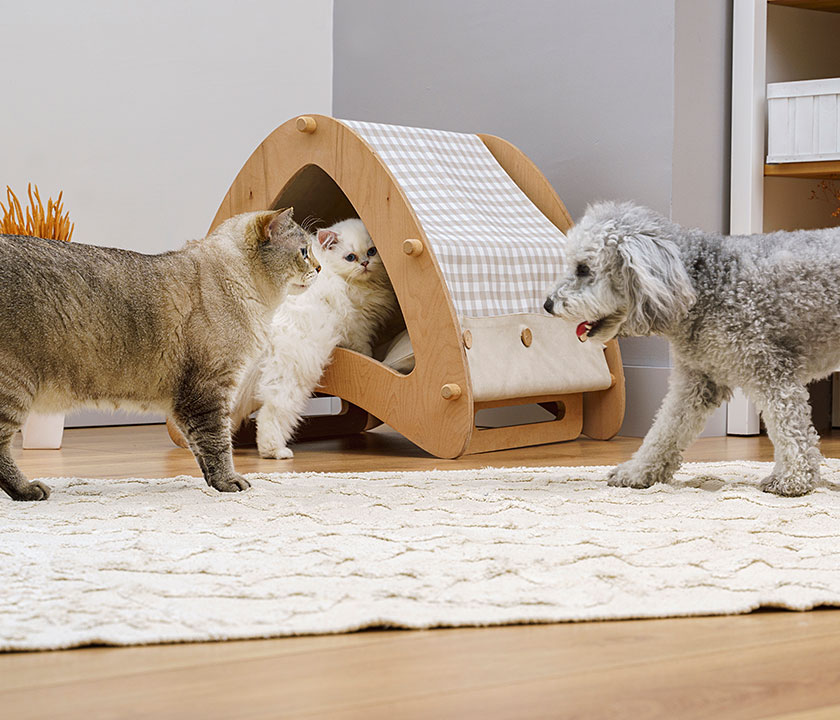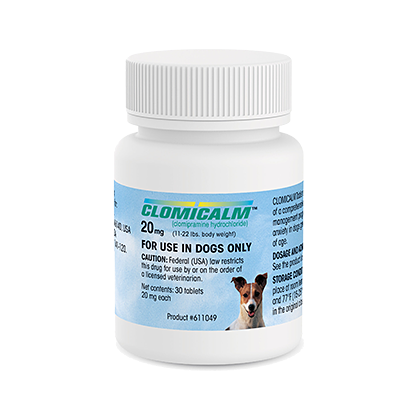Anxiety in Dogs and Cats
What is anxiety in pets?
Anxiety is a normal emotional response that can protect your pet from danger in unsafe situations.
Most cats and dogs experience anxiety from time to time. It's common for pets to have trouble processing everyday triggers, adjusting to new routines, or coping with daily stress.
But for some pets, it can negatively impact their overall well-being, especially when their anxiety becomes chronic or severe.
Separation anxiety affects pets that become fearful and restless when left home alone. It can lead to inappropriate urination, destructive behaviors, excessive vocalizing, and repetitive, compulsive behavior like tail-chasing, overgrooming, paw licking and chewing.
Social anxiety can be triggered when the pet encounters new people, such as when their pet parent has house guests. Dogs may also experience anxiety when they meet new people or other dogs on a walk. The pet may hide, cower, and avoid contact. Social anxiety can also manifest as reactivity, or barking and even aggression.
Situational anxiety can affect any pet, even those that do not experience excessive anxiety on a day-to-day basis. Vet visits, grooming appointments, and other normal situations can cause a disproportionate amount of stress for many cats and dogs. Thunderstorms, fireworks, and travel can also be triggers. Pets with situational anxiety may need occasional help but do not necessarily need daily anxiety relief.
Why treat anxiety in pets?
When cats and dog experience anxiety, it can manifest as unwanted or destructive behavior, physical health issues, and a strain on the human-animal bond. Treating anxiety, whether by training, behavioral modification, calming supplements, or medications, or a combination of those tools, can lead to long-term benefits to your cat or dog's health and well-being.
Treating anxiety in pets can help:
- Reduce problem behaviors like excessive barking, destructive chewing or inappropriate elimination
- Improve learning comprehension and obedience
- Prevent anxiety-related health issues like gastric upset and lowered immunity
- Ensure healthy mental development in puppies and kittens
Anxiety is often overlooked as a potential underlying cause for unexplained behavioral issues and physical health conditions. Cats and dogs depend on us to help them feel safe. When their emotional needs are met, pets are calmer, healthier, and happier.
Shop Anxiety Relief for Your Pet
PetMeds® delivers calming supplements, prescription anxiety medication, and other anxiety aids to your doorstep.
Keep anxiety at bay with PetMeds® AutoShip
Save 35% OFF your first AutoShip order | Use code SAVE35 in cartFrequently Asked Questions about Anxiety in Pets
Where can I learn more about anxiety in pets? You can find educational articles about anxiety in our Pet Health Advice. Talk to your veterinarian for specific advice for your cat or dog.









































